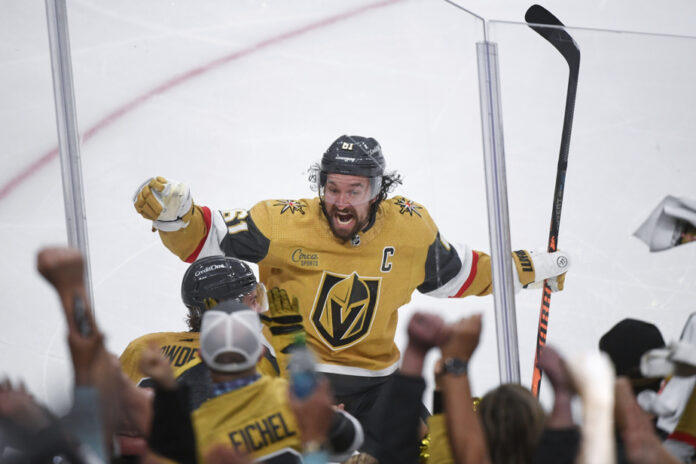Every Monday, journalists from the Sports team answer your questions.
At the start of the 2023 playoffs, I heard a rumor that Vegas was going over the salary cap with the return of Mark Stone. Could it be that for the second time in three years, after the 2021 Lightning, “cheaters” win the Stanley Cup?
Let’s make one thing clear: no one is “cheating” here. With the salary cap nearly fixed for four seasons, teams need to use every tool possible to give themselves a competitive edge. The long-term injury list is one such tool. By placing a player on this roster, a team can gain additional space above the salary cap. When he returns to play, the cap is back to its usual threshold… except in the playoffs. So yes, situations may seem odd, but it’s totally legal.
I don’t know if I’m wrong, but it seems to me the Nordiques were once dubbed the Quebec Nordiques at one point in the WHA. A Google search did not yield any results. Did I dream this, or did they have this name in the past?
After researching the archives of Bibliothèque et Archives Nationales du Québec, I found some traces of the Nordiques du Québec, but it is quite thin. The newspaper Le Courrier de Saint-Hyacinthe sporadically used the term Quebec Nordiques in 1976 and 1977. “After playing for three years with the Dallas Black Hawks, Archambault signed a two-year contract with the Nordiques of Quebec”, could we read on August 18, 1976 in a text on Michel Archambault.
Why doesn’t the National Hockey League require players to shake hands at the end of every game? Maybe if they took the time to look each other in the eye and congratulate each other, there would be more respect between players and less wanton violence? But hey, that’s just my opinion. Only hockey and baseball maintain this archaic tradition. THANKS.
I would like to be as optimistic as you are, but in the last few years we seem to be heading in the opposite direction. One example among many others, in the Laurentian Hockey League, in minor hockey, the handshake is imperative, but before meetings. Post-game handshakes are on the way out, particularly due to the post-game breaststroke. In the NHL, you can believe that over an 82-game season, it would take your breath away a few times.
The player gives a legal check to the opponent. A teammate of the hit player rushes on the first to start a fight. Both players get five minutes each. How is it that in this league, after a legal hit, there is no additional penalty to the instigator of that fight?
So agree with you! It happens too often! NHL Rule 46.11, however, is clear: the first player to throw away his gloves, walk a given distance to join an opponent in order to start a fight, throw the first punch, threaten physically and, or, verbally shall receive, in addition to a major penalty for fighting, a minor penalty of two minutes for initiating the fight and ten minutes for misconduct. For some reason, this rule is not applied by the referees even if the situation is clear. Another one of those unwritten laws of hockey that the umpire leadership seems to allow…
Given how important the work of goaltenders, especially during the playoffs, how come they rarely make it to the top picks in the annual NHL Player Draft?
In hockey, as in life in general, it’s all about trends. However, it turns out that several Stanley Cup champion goalies in recent years are not exactly top of the class: Darcy Kuemper (sixth-round pick), Jordan Binnington (third-round pick), Braden Holtby (fourth-round pick), not including Matt Murray, who has more rings than Carey Price because he ended up in the right place at the right time. In fact, the 2010 final, which pitted Antti Niemi against Michael Leighton, was a bit of a turning point; from now on, it was going to be possible to win with a wooden board in front of the net (we exaggerate, but barely). Since that memorable final, only one goalkeeper drafted in the first round, Andrei Vasilevskiy, has led his club to a Cup in a starting role. This pretty much explains it.















